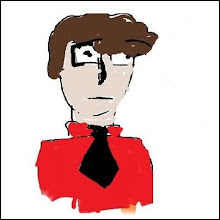Defining self-hood
In the world of Dune, a Lockean view of self seems to be confirmed. Locke supposed self to be the continuity of consciousness, not related to a soul or a body.
From wikipedia:
John Locke considered personal identity (or the self) to be founded on consciousness (viz. Memory), and not on the substance of either the soul or the body. Chapter XXVII "On Identity and Diversity" in An Essay Concerning Human Understanding (1689) has been said to be one of the first modern conceptualization of consciousness as the repeated self-identification ofoneself. Through this identification, moral responsibility could be attributed to the subject and punishment and guilt could be justified, as critics such as Nietzsche would point out.
According to Locke, personal identity (the self) "depends on consciousness, not on substance" nor on the soul. We are the same person to the extent that we are conscious of our past and future thoughts and actions in the same way as we are conscious of our present thoughts and actions. If consciousness is this "thought" which "that goes along with the substance ... which makes the same person", then personal identity is only founded on the repeated act of consciousness: "This may show us wherein personal identity consists: not in the identity of substance, but... in the identity of consciousness". For example, one may claim to be a reincarnation of Plato, therefore having the same soul substance. However, one would be the same person as Plato only if one had the same consciousness of Plato's thoughts and actions that he himself did. Therefore, self-identity is not based on the soul. One soul may have various personalities.
We see this in Dune in the gholas. In Dune Messiah when Hayt regains the memories of Duncan Idaho, there is no thought of him being a pseudo Duncan or a quasi-Duncan. He is treated and considered by all to be the same person as the original Duncan Idaho. This is preserved through out the series, for example, when the Tlielaxu masters continue their lives through a continuous series of gholas. The gholas of each new master is considered to be the same as the master, despite being a different body.
